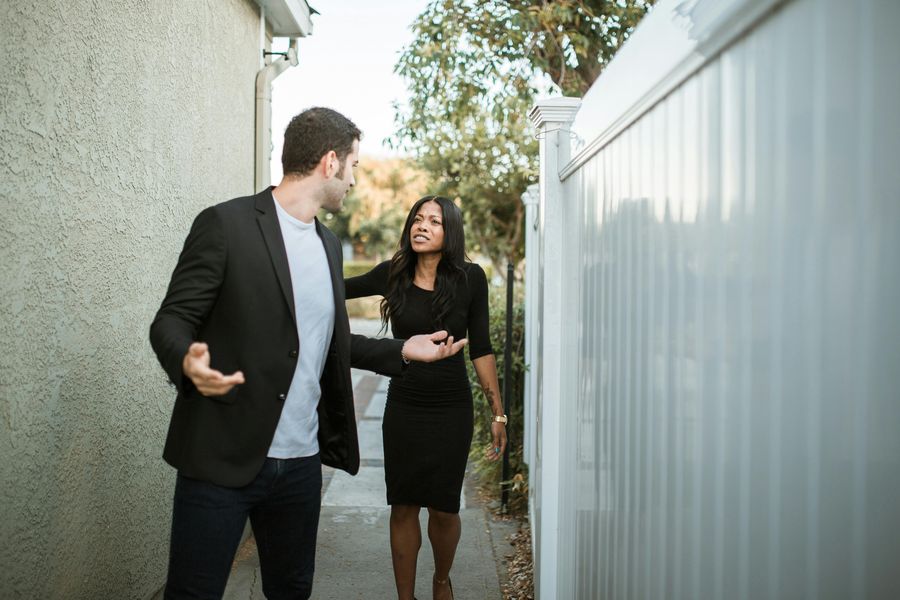How Starting Early Can Benefit Your Relationship
When it comes to relationships, many of us tend to wait until things get bad before we seek out help. However, research shows that starting therapy early can have a significant positive impact on the success of a relationship.
Benefits of Early Therapy
-
Double Down on Therapy: When couples start therapy early, they have a better chance of making progress because they have not yet developed deeply entrenched patterns of behavior. This means that they can make changes more easily, and the therapist can help them work on specific issues that might be causing tension in their relationship.
-
Communication Skills: One of the most significant benefits of therapy is the opportunity to learn and practice effective communication skills. Early on in a relationship, couples may not yet have developed a solid foundation of healthy communication.
Therapy can help couples learn how to express themselves, listen to their partner, and work together to solve problems.
-
Insight: Therapy can also help couples gain greater insight into themselves and their partner. Early on in a relationship, people are still getting to know each other, and it can be challenging to understand why the other person acts a certain way.
Therapy can provide a safe space for couples to explore their emotions, thoughts, and behaviors, which can lead to greater understanding and empathy.
Managing Relational Duress
Relationships can be challenging, and even the most loving couples can experience conflict and tension. But the way couples handle their disagreements can make all the difference.
Tips for Managing Relational Duress:
-
Cooling Off: When emotions are running high, it’s essential to take a step back and let things cool down. This can mean taking a break from the conversation or even the relationship itself.
It’s essential to establish clear boundaries and guidelines around what constitutes a necessary cooling-off period.
-
Conflict Mitigation: Inevitably, couples will experience disagreements, but it’s how those disagreements are handled that matters. It’s important to avoid yelling, blaming, and attacking the other person.
Instead, couples should focus on listening to each other, expressing their feelings, and working together to find a resolution.
-
Roleplaying: Roleplaying is a great way to practice healthy communication skills and learn how to handle conflict better. Couples can take turns ‘playing’ themselves and their partner in hypothetical scenarios, which can lead to greater empathy and understanding of each other.
Therapeutic Tools for Couples
Therapy offers a range of tools and techniques for couples to use to improve their relationship.
Examples of Therapeutic Tools:
-
Recast Vision: Often, couples come to therapy with different ideas about what their future together looks like. Recasting a vision of the future can help couples gain clarity about what they want and work together towards shared goals.
-
Forward-Looking: Therapy can help couples focus on the future instead of dwelling on the past. By focusing on future goals and aspirations, couples can start to build a positive, forward-looking relationship.
-
Brainstorming: Brainstorming is a technique where couples can generate creative solutions to problems. It involves taking a non-judgmental approach and allowing all ideas to be considered.
This technique can lead to unique solutions that may not have been considered otherwise.
-
Spiritual Direction: For couples who share a spiritual connection, exploring faith traditions, meditation, and worship can be a powerful tool for improving their relationship. It can provide a sense of grounding, meaning, and purpose, which can help bring couples closer together.
-
Child-Related Issues: Parenting can be a challenge, and couples may have different ideas about how to raise their children. Therapy can help couples work on issues surrounding discipline, technology, and spirituality in a way that is respectful and collaborative.
Conclusion: Benefits of Early Therapy
Seeking therapy early in a relationship can have significant benefits for couples. It can help them build a solid foundation of healthy communication and gain insight into themselves and their partner.
Managing relational duress is also important, and tools like cooling off, conflict mitigation, and roleplaying can be effective. Finally, there are many therapeutic tools and techniques that couples can use to improve their relationship, such as recasting a vision, forward-looking, brainstorming, exploring spiritual direction, and working on child-related issues.
Challenges of Couples Therapy
Despite its potential benefits, couples therapy is not without its challenges. Couples may encounter difficulties that prevent them from seeking therapy or staying committed to the process.
Common Challenges of Couples Therapy:
-
Misappropriated Stigmas: One of the most significant obstacles to seeking therapy is the misappropriated stigmas attached to it. Therapy is often perceived as a sign of weakness or defeat, which can make couples hesitant to seek help.
This belief is particularly prevalent among couples who have grown up in cultures where therapy is not widely accepted or endorsed. To overcome this stigma, it’s essential to understand that seeking therapy is not a sign of weakness.
It takes courage and strength to admit that you need help with your relationship. It’s also essential to recognize that therapy is a tool that helps couples improve their relationships, not a last resort.
-
Preemptive Action: Another challenge couples face is preemptive action or deferred maintenance. Many couples only seek help when their relationship is on the brink of collapse, often waiting too long to address the underlying issues.
By this point, the damage may be extensive, and the road to recovery may be more challenging. By contrast, proactive couples recognize the value of taking preemptive action by addressing issues early on, before they become too significant.
This approach leads to better long-term health and vitality for the relationship. A good rule of thumb is to check in with each other regularly and seek help when there’s a sign of tension or conflict.
Improving your Relationship
If you’re considering couples therapy, here are some tips for improving your relationship:
Tips for Improving Your Relationship:
-
Recognize the value of therapy: Before you start couples therapy, it’s essential to understand the significant benefits that it can provide. By addressing underlying issues in a safe space, couples can improve communication, gain insight into their relationship, and develop stronger bonds.
-
Find the Right Therapist: Finding the right therapist is crucial in making the most of couples therapy. The therapist should have experience working with couples, be compassionate, and non-judgmental.
Look for a therapist who has a proven track record of helping couples address similar issues to yours. It’s also important to find a therapist who is sensitive to your cultural background and values.
-
Stay Committed: Couples therapy is a process that requires time, effort, and commitment. It may not always be easy, but it’s important to stay committed to the process and see it through to the end.
This means being open and frank with each other, being willing to listen and change, and being patient with each other.
-
Be Willing to Change: Couples therapy is about making changes that lead to a healthier, happier relationship. This requires both partners to be willing to change.
It’s important to be open to feedback from your partner and be willing to work on yourself to make things better.
Conclusion: Investing in Your Relationship
In conclusion, while there may be challenges to couples therapy, the benefits outweigh the risks. By recognizing the value of therapy, finding the right therapist, staying committed, and being willing to change, couples can improve their relationship and build a stronger bond that lasts a lifetime. By taking preemptive action and addressing underlying issues before they spiral out of control, couples can make the most of couples therapy and enjoy a happier, healthier relationship.
In conclusion, starting couples therapy early and recognizing its benefits is an essential step towards building a healthy, fulfilling relationship. While there may be challenges to couples therapy, such as stigma and deferred maintenance, these can be overcome by recognizing the value of therapy, finding the right therapist, staying committed, and being willing to change.
Through techniques such as effective communication, thinking about a shared future, exploring spirituality, and working together to address child-related issues, couples can improve their relationship and build a stronger bond that lasts a lifetime. By taking the time and effort to invest in your relationship, you and your partner can enjoy a happier, healthier future together.



